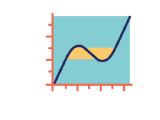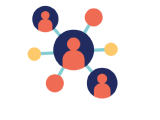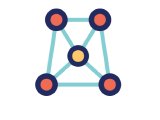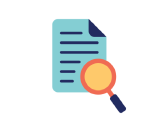Social Hackathon
News #
- Presentation of the final solutions will be on Wednesday 30th, 2024 at 10AM. See the conference schedule for more information.
- Deadline for submission of your project is October 2nd, 2024 (Anywhere on Earth). Submit your project here.
- Winners will be announced by October 4th, 2024 by the end of the day.
Social Hackathon #
We invite you to participate in the Social Hackathon, a key component of the ACM Conference on Equity and Access in Algorithms, Mechanisms, and Optimization (EAAMO), to be held at the Autonomous University of San Luis Potosi (UASLP) in San Luis Potosi, Mexico on October 31, 2024. The social hackathon is co-organized by EAAMO, UASLP, IPICYT, and IPICYT’s Mobile Health Center.
Be part of this impactful endeavor by forming a team and contributing your skills and expertise. By participating in the Social Hackathon, you will have the opportunity to make a tangible difference in addressing critical social issues through innovative technological solutions.
Together, let’s create solutions that drive equity and access for all. The maximum team size is eight, while the minimum team size is one. Ideally, we would like to have international-multidisciplinary teams.
How to Register #
- Fill out the registration form with your details. Please note that the maximum team size is eight, while the minimum team size is one. Ideally, we would like to have international-multidisciplinary teams.
- Form or join a team, or register as an individual.
- Work on your project. Check participation page for more information. Data is available at the OpenSouth platform. For the initial analysis of the data, we recommend you to look at the following GitHub repository.
- Submit your project by October 2nd, 2024 (Anywhere on Earth).
This Year’s Challenge: Breast Cancer in Mexico #
Breast cancer is the most common cancer in women in Mexico, accounting for 30% of malignant neoplasia. In 2020, The incidence rate was 40.5 per 100,000 inhabitants in the country, with an age-adjusted incidence of 49.3 per 100,000 reported in Merida alone in 2022. Established risk factors explain up to 70% of postmenopausal breast cancer cases in the US, but only one-third can be prevented by modifying lifestyle factors such as weight, hormone therapy, alcohol use, and physical activity.
Health equity studies in Mexico found significant links between education level, socioeconomic status, and breast cancer prognosis. Environmental exposure to carcinogens and endocrine-disrupting compounds (EDCs) also contributes to breast cancer risk. While lifestyle changes and the built environment impact risk factors like excess body weight, physical inactivity, alcohol consumption, delayed childbearing, fewer childbirths, and not breastfeeding, they do not fully explain the rise in breast cancer cases.
Emerging evidence shows that air pollution, classified as a carcinogen, may increase breast cancer risk through genetic mutations and increased breast density. Heavy metals like lead, mercury, arsenic, and cadmium, found in air pollution, act as xenoestrogens and carcinogens, particularly affecting high-risk, low-income populations with limited healthcare access.
Understanding the impact of these environmental risk factors on breast cancer mortality, especially in underserved communities, is crucial. Novel approaches are needed to develop evidence-based public health decisions that address environmental exposures, social risk, healthcare access, and breast cancer mortality surveillance.
Sponsors and Partners #
We are proud to partner with leading organizations, including:
- Mobile Health Center, Instituto Potosino de Investigación Científica y Tecnológica
- Universidad Autónoma de San Luis Potosí
- Consejo Potosino de Ciencia y Tecnología (COPOCYT)



